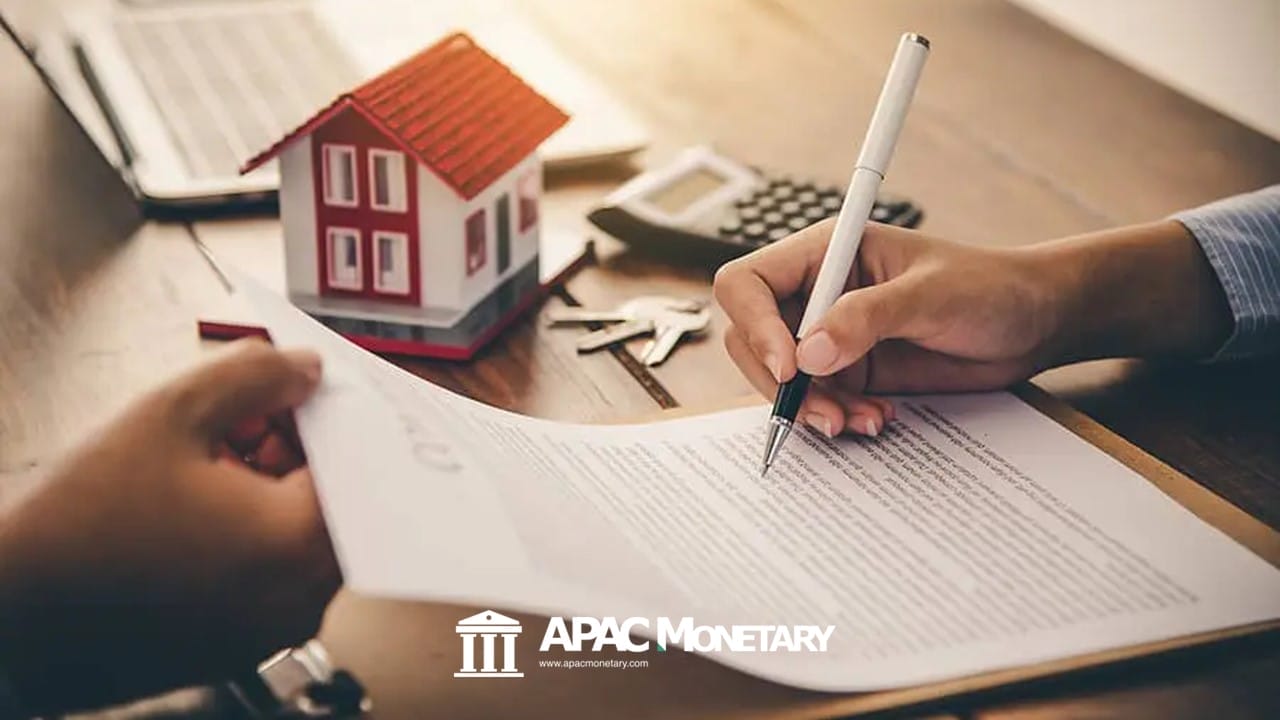Table of Contents
When starting your journey into homeownership, it’s important to understand the concept of mortgage payable, especially for those new to buying a home in the Philippines. Mortgage payable refers to the amount you owe to a lender when you borrow money to buy real estate. This financial commitment typically involves a loan backed by the property, which means your home is collateral.
To manage mortgage payments effectively, it’s crucial for beginners to focus on budgeting and financial planning. Start by assessing your financial situation, considering your monthly income, expenses, and the potential mortgage payment. Creating a realistic budget will help you ensure that you can comfortably meet your mortgage obligations without sacrificing other essential expenses.
Understanding the mortgage terms, such as interest rates, repayment schedules, and additional fees, is also important for your financial well-being. By getting familiar with these aspects, first-time homebuyers can make informed decisions and avoid potential pitfalls associated with mortgage agreements.
Moreover, seeking advice from financial experts or attending workshops can provide valuable insights into managing debt and improving credit scores. By taking proactive steps to understand and manage mortgage payments, Filipino beginners can set the stage for a successful homeownership experience.

Understanding Mortgage Payable
Mortgage payable is the amount of money that a borrower owes to a lender for a loan secured by real estate. It’s the financial responsibility that kicks in when someone buys a property and finances a part of the cost through a mortgage. This kind of loan is usually a long-term thing, often spanning several years, and the borrower pays it back in installments over time.
The cool thing about mortgage payable is that it helps Filipinos and investors buy homes or investment properties without having to pay the full purchase price upfront. This makes the real estate market more accessible and helps the economy grow.
What’s special about mortgage payable is that it’s tied to real property, which means that if the borrower doesn’t make their payments, the lender can take possession of the property through foreclosure. This sets it apart from other types of loans, like personal loans or credit cards, which are usually not tied to any specific collateral. Mortgage payables also tend to have lower interest rates than unsecured loans, which makes them a key part of real estate finance, making it easier for people to own property while also lowering the risk for lenders.

1. Types of Mortgages Available in the Philippines
In the Philippines, you’ll find several types of mortgages offered by financial institutions to suit different needs and financial situations. One popular option is the fixed-rate mortgage, which locks in an interest rate for the entire loan term, providing stability in monthly payments. Another common choice is the variable-rate mortgage, where the interest rate fluctuates based on market conditions, potentially offering lower initial rates but with the risk of increased payments. There are also home equity loans that allow borrowers to use the equity in their properties for other financial needs. Lastly, government-backed loans, such as those from the Pag-IBIG Fund, provide accessible financing options with favorable terms for first-time homebuyers. It’s important for prospective borrowers to understand these types of mortgages, as they can significantly impact their financial future.
When considering these mortgage types, it’s essential to think about factors like interest rates, payment flexibility, and long-term financial commitments. Fixed-rate mortgages provide predictability, making budgeting easier, but may come with higher rates than variable options. On the other hand, while variable-rate mortgages can start with lower payments, borrowers must be prepared for potential increases, affecting their overall mortgage payable. Home equity loans can be advantageous for those who need immediate funds but may lead to higher monthly repayments if not managed properly. Government loans often offer lower interest rates but can involve stricter eligibility criteria. By weighing these factors, beginners can make informed decisions that align with their financial goals and capabilities.
2. Factors Affecting Mortgage Payable
Considering mortgage options involves taking into account several key factors that can greatly influence the overall cost and terms of the mortgage. Interest rates play a critical role in determining the amount borrowers will pay in addition to the principal amount over the life of the loan. Even a slight increase in interest rates can add considerable expenses to monthly payments. Loan terms, which typically range from 15 to 30 years, also significantly impact the overall cost. Shorter terms generally come with lower interest rates but higher monthly payments, while longer terms reduce monthly payments but increase the total interest paid over time. Down payment requirements can also vary, with larger down payments often leading to better mortgage terms by reducing the lender’s risk and potentially eliminating the need for private mortgage insurance (PMI).
Understanding these factors is essential for those new to securing favorable mortgage terms. One effective strategy is to work on improving credit scores by paying down existing debts and ensuring timely payments, as higher credit ratings can lead to better rates from lenders. Additionally, saving for a larger down payment can enhance bargaining power, potentially resulting in lower interest rates and reduced monthly payments. Shopping around and comparing offers from different lenders is also crucial, as varying terms and conditions can significantly impact mortgage costs. Finally, being pre-approved for a mortgage can provide a clearer picture of affordability and strengthen a buyer’s position when making an offer on a home.
3. Strategies for Managing Mortgage Payable
To achieve financial stability, it’s crucial for homeowners to effectively manage their mortgage payments. One practical approach is to begin by creating a comprehensive budget that encompasses all monthly expenses, including the mortgage. Tracking income and expenses is a good starting point to identify areas where costs can be reduced. Allocating a specific portion of your monthly income towards the mortgage payment should be a top priority to avoid late fees and other negative repercussions. Setting up automatic payments can help ensure your mortgage is paid on time, reducing the risk of missed payments. Exploring options such as refinancing can also be beneficial, potentially leading to a lower interest rate and reducing the total amount paid over time.
Maintaining a good credit score is vital for securing favorable mortgage terms and minimizing overall debt. A strong credit rating can result in lower interest rates, directly affecting the total mortgage payable. Improving your credit score involves making timely payments on existing debts, keeping credit card balances low, and refraining from taking on unnecessary new debt. Regularly reviewing your credit report can help identify any errors that may be negatively impacting your score. By taking proactive steps to enhance your credit profile, you can set yourself up for better mortgage terms in the future, ultimately making it easier to manage your mortgage payments efficiently.
4. Risks and Pitfalls to Avoid
When considering a mortgage-payable agreement, it’s important for newcomers to be mindful of potential risks and challenges that could impact their financial well-being. One significant risk is the possibility of interest rate fluctuations, especially with a variable-rate mortgage, which could lead to higher monthly payments if interest rates increase. Additionally, many new homeowners underestimate the overall cost of homeownership, including expenses such as property taxes, insurance, maintenance, and unexpected repairs, which could strain their finances and even lead to foreclosure.
To address these concerns, it’s essential for borrowers to conduct thorough research and create a realistic budget before committing to a mortgage. Opting for a fixed-rate mortgage can provide stability in the face of potential interest rate hikes. Developing a comprehensive budget that accounts for all homeownership costs can help ensure that individuals are prepared for unexpected expenses. It’s also advisable to establish an emergency fund capable of covering several months’ worth of mortgage payments in the event of job loss or unexpected financial difficulties. By taking these proactive measures, newcomers can safeguard themselves against the common challenges associated with mortgage payables and set the stage for a secure financial future.
5. Seeking Professional Advice
Navigating significant financial decisions, especially those related to home buying and mortgages, can feel overwhelming. Seeking advice from Filipino experts like financial advisors and mortgage specialists can make a world of difference. These professionals have the knowledge and experience to guide you through the complexities of securing a mortgage, help you understand your options, and tailor a plan that fits your needs. By working with them, you not only gain insight into the current market conditions but also develop a comprehensive strategy to avoid costly mistakes, ensuring that your mortgage experience is as efficient and beneficial as possible.
Moreover, the benefits of consulting professionals extend well beyond the initial mortgage arrangements. Filipino financial advisors and mortgage experts can provide ongoing support and guidance throughout the life of your mortgage, helping you navigate any changes in your financial circumstances or the economic landscape. They can assist with refinancing decisions, advise on payment strategies, and help you understand the implications of different mortgage terms. This professional oversight can lead to a smoother mortgage experience, allowing you to focus on your long-term financial goals with confidence, knowing that you have expert support every step of the way.
Endnote: Mortgage Payable
Understanding the basics of mortgage payments is crucial for Filipinos who are new to the journey of homeownership. Having a solid grasp of what mortgage payable involves is important for prospective homeowners to comprehend the long-term financial commitments associated with buying a property. Being well-informed about interest rates, payment structures, and the consequences of defaulting on loans enables individuals to accurately assess their financial situation and be prepared for the responsibilities of owning a home. This foundational knowledge not only provides them with the necessary tools to manage their finances effectively but also cultivates a sense of confidence as they navigate the mortgage process.
Furthermore, by implementing effective strategies related to mortgage payments, beginners can more easily navigate the complexities of home financing. From researching the best mortgage rates to taking advantage of government programs designed for first-time buyers, there are numerous ways to establish a manageable repayment plan. Recognizing the significance of a good credit score and understanding its impact on mortgage terms will further empower Filipino beginners to make informed decisions that align with their financial objectives. Taking these steps can lead to a successful homeownership experience, ultimately contributing to a stable and fulfilling future.









